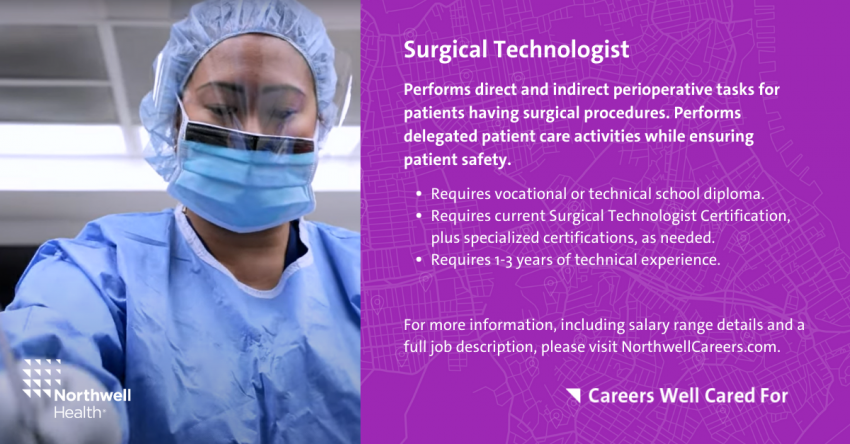Surgical Technologist Salary: An In-Depth Look at Compensation in the Field
Surgical technologists or surgical room technicians or scrub techs, are an irreplaceable member of the clinical team whose role is substantial in surgical preparation and assistance during surgery. They also warrant sterility in the operating room, that the surgical instruments are operable and that the operative team is at the disposal for an efficient surgery. Surgical technologists have a relatively good wage due to their technical know-how, but there is a wide variability in wage, depending on where, how long, how educated and in which health care setting they are employed. This article will cover what paramedic salary ranges are, how paramedic salaries are affected, job growth rates, and spatial variation.Surgical Technologist Salary
Average Surgical Technologist Salary
The median av •n •al salary •or surgical t •sognists in the USA is apprx 39,000 to 75,000/year, while the •ower c •th is •pproxy $35,000/year.
Key Factors Influencing Surgical Technologist Salary
Many factors may influence the amount a surgical technologist earns. The ones are experience, educational background, geographic region, and the health care institution they are employed in.
Experience
Experience is one of the main determinants of surgical technologist’s salary rate. Entry level surgical technologists, especially those with little to no professional experience level derive salaries closer to the lower end of the salary scale. The more real-world experiences and practice they can gain themselves, the greater their pay rates are likely to become. For example:
Entry-Level (0-2 years): It is predicted that at the start of. surgical technologists’ careers, an annual salary of 45,000 will be earned.
Mid-Career (3-5 years): Experienced technologists often experience an increase in salary, with a salary of up to $55,000 per year.
Experienced (5+ years): Individuals with several years of experience >five years) may make a living up to 75,000 per year, especially if they are experienced in a surgical area which is in high demand, e.g., cardiovascular surgery or neurosurgery.
Besides years of experience, degree of impact from holding certain certifciations on salary range will also be included. Surgical technologists who are certified in a specialized subspecialty of surgery or have received special training can expect to earn a premium.
Education and Certification
Although a high school diploma is the basic standard of entry into the profession, an increasing number of surgical technologists are obtaining formal training in the way of certificate programs, associate degrees, and even bachelor’s degrees in surgical technology. There is an association between expert level of education and a higher hourly rate. Besides training, certifications also help to increase the salary.
Education: Surgical technologists with a two year degree (or completion of a program from an accredited school) generally make more than those with a diploma only. An associate’s degree generally requires two years to complete, and graduates are on track to sit for the certification exams.
Certification: Getting certified as a Certified Surgical Technologist (CST) at organizations like the National Board of Surgical Technology and Surgical Assisting (NBSTSA) is strongly advised and can bring about better pay. Certification is an indication of advanced competency and expertise in surgical technology, which improves the certification of technologists in the workforce.
Certified surgical technologists, on average, earn about 6â 000/yr more than their non-certified colleagues. In addition, there are hospitals and surgical centers that financially motivate staff to pursue certifications, that is, it tends to enhance the salary opportunity.
Location
Geography is one of the principal determinants of the salary discrepancy between surgical technologists. Where the cost of living is high and/or there is high demand for healthcare professionals, salary rates are also going to be higher. Furthermore, there may be labor shortages in some states or cities, which in turn would lead to increased wages effort to secure qualified candidates.
States with Higher Salaries: In states such as California, Alaska, Massachusetts, as well as Nevada, surgical technologist wages are generally the highest. Nevertheless, in the case of California as an example, the average salary of the surgical technologist reach more than $65,000 per year, the most profitable cities are San Francisco and Los Angeles.
Rural vs. Urban Areas: Competitive wages are more likely to be available in urban environments, as compared to rural communities, because large hospitals, surgical centers and healthcare systems are more prevalent. However, rural areas may also offer incentives such as loan repayment programs or housing stipends to attract healthcare workers.
Cost of Living Adjustments: High cost of living areas such as New York City, San Francisco, etc., will be able to cover costs at the expense of a higher cost of living. On the other side, regions having a relatively low cost of living have wages around (if not above) the national mean.
Industry and Workplace
Depending on the setting, surgical technologists may work in hospitals, outpatient surgical clinics and offices of surgeons. The type of facility in which a surgical technologist works will have a major impact on salary.
Hospitals: Generally, the surgeon’s higher level of salary is obtained when he/she works at a large or teaching hospital. Such organizations frequently offer means for development, further training, and certification which can result in higher salary.
Outpatient Surgical Centers: Outpatient surgery conducted by ambulatory surgical centers (ASCs), which is a group of facilities offering outpatient surgery, typically doesn’t earn a top dollar rate compared to hospitals, however, competitive salaries are available. The work environment can be busy and procedures are step-wise or sequence based.
Physician’s Offices: Surgical technologists in physicians’ offices usually earn less money than the surgeons employed in hospitals or surgical centers. However, the consequences of this type are also associated with a more predictable work schedule and decreased on-call/overtime hours, which could be important for consideration for career seeking to achieve a work-life balance.
